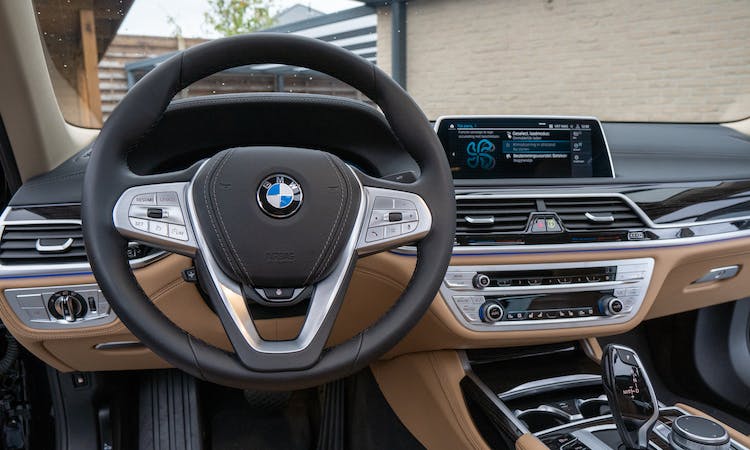Your vehicle holds a vast amount of personal information about you. The issue of privacy in regards to cars is complex; even an established company like Mercedes Benz acknowledges this. In an interview with the Mozilla Foundation, they admitted that they couldn’t give “universal answers.”
Cars have had computers since the 1970s, but now they control more things and record more data. Rolling down a window used to take a crank, but now it’s just a button. This technology is not limited to futuristic cars.
Advanced cars no longer require buttons. Touch sensors and screens respond to a finger boop, foot wave, or polite request. However, this means that every interaction with the car is recorded by its microphones, cameras, and sensors and stored by the company.
Through your vehicle, your movements can be monitored, including your destinations and journey times. Every time you press down on the gas pedal or adjust your seatbelt, it is recorded. Your biometric data can also be collected. This sensitive information is often sold by the obscure data broker industry.
Modern vehicles can be compared to smartphones, equipped with internet-connected applications that gather large quantities of information, some of which may be sensitive and personal.
The majority of drivers are unaware of the data constantly being transmitted from their vehicles, as well as who is collecting, analyzing, and sharing that data with others. According to a recent survey conducted by the Automotive Industries Association of Canada, only 28% of respondents had a clear understanding of the various types of data their vehicle generates, and the same percentage were aware of who has access to this data.
Cameras: Dashboard and reverse cameras are useful for parking assistance and can be a valuable resource for insurance investigations in case of accidents. However, they also track the route taken by the vehicle, including date and time stamps as well as road positioning.
In addition, dash cameras can record images of other drivers and people walking on the road. The national dashboard camera safety portal permits owners to upload their footage to law enforcement in England and Wales, providing valuable evidence for investigations.
Infotainment system: In the past, listening to music while driving was as easy as popping in a cassette or CD. However, over time, these systems have been replaced by more advanced technologies such as Bluetooth, wifi, and USB devices. These new options can be controlled through touch screens or dashboard displays.
In addition to delivering information and entertainment, the infotainment system is typically the main way drivers interact with other features of their vehicles. This includes monitoring fuel usage and adjusting seat warmth levels.
When connected to a car’s infotainment system via Bluetooth or plugged in, smartphones can save data such as past navigation routes, text, and email conversations, internet browsing history, and social media activity. This also includes records of Bluetooth and cell tower connectivity.
GPS Tracking: Smart cars often utilize GPS technology to aid drivers in navigation. While this is essential for features such as maps and up-to-date traffic information, it also allows the car to pinpoint its location accurately.
Black box: Black boxes are devices installed in vehicles to track a driver’s performance. While not all vehicles have them, they are favored by insurance companies. By analyzing the data from these black boxes, insurance companies can potentially lower a driver’s premium if their driving skills are deemed satisfactory.
In addition to tracking GPS coordinates, black boxes can provide information on a vehicle’s mileage, usage frequency, and performance in areas such as braking and cornering.
eCall units: In 2018, eCall units were introduced to EU and UK vehicles. This system provides quick help in road accidents by detecting collisions and airbag deployment and automatically contacting emergency services.
eCall gathers a range of information, including the vehicle’s location using GPS, its direction of travel, VIN (vehicle identification number), fuel type, and whether seat belts were being used.
Mobile Apps: Mobile apps are available for most smart cars, allowing owners to remotely control certain features, track the car’s location, and receive notifications. These apps also can send and save data.
Key fobs: Aside from their primary function of locking and unlocking our cars, key fobs hold a surprising amount of data. This includes the vehicle identification number (VIN), the number of keys associated with the car, and a record of when the car was last locked and unlocked.
ExpressVPN found that the data also covers topics such as income, immigration status, race, and even personal details like sexual activity (believe it or not) and genetic information. If your privacy settings allow it, they can also view your photos, calendars, and to-do lists.
Factors that contributed to the growth and popularity of Smart Cars:
According to WorldBank, electric cars have gained a strong foothold in major markets such as China, the United States, and Europe. However, their acceptance has been sluggish in developing countries.
A study of 20 countries found that over half could benefit economically by adopting electric transportation. In some, the higher initial cost is justified by lower operating costs, while in others, environmental benefits make it attractive. The best cases are for countries without a car-focused culture and those that are net oil importers with cheaper vehicles.
Despite the initial higher cost compared with fossil-fueled vehicles, EVs offer substantial financial rewards. They are cheaper to run and maintain, with potential savings of up to $5,000 over its lifetime. Additionally, in countries that tax gasoline and subsidize electricity, the savings can be even greater for low- and middle-income individuals.
The same principle applies in India, where the majority of travel is done on two-wheeled vehicles. It is crucial to transition to electric transportation to decrease air pollution, as half of the world’s most polluted cities are located in India. Additionally, this change would help reduce the country’s reliance on imported oil and drive industrial growth.
What does an End User Privacy Policy state?
Most car insurance policies require users to provide their vehicle information, including their email address, password, PIN (vehicle manufacturer account credentials), and vehicle identification number.
The information is used to collect and provide smart services for end users, as well as for internal purposes such as updates and security alerts. Additionally, it is used to respond to inquiries, complaints, and support requests.
The policies for smart cars state that they may utilize personal information to adhere to applicable laws, enforce the terms and conditions that govern the services, and safeguard the manufacturer’s rights, privacy, safety, or property, and/or those of end users or others. This includes taking steps to prevent, investigate, and discourage any fraudulent, harmful, unauthorized, unethical, or illegal activity.
Manufacturers share collected data with developers, but only if it relates to the end users of the developers’ products. They may also share this information with third-party service providers who assist in managing and enhancing smart services, – including government agencies, unspecified service providers, tech giants like Apple, Google, and Amazon Alexa, Law enforcement, affiliates, advertising and research companies, dealers, social media platforms, and data brokers.






